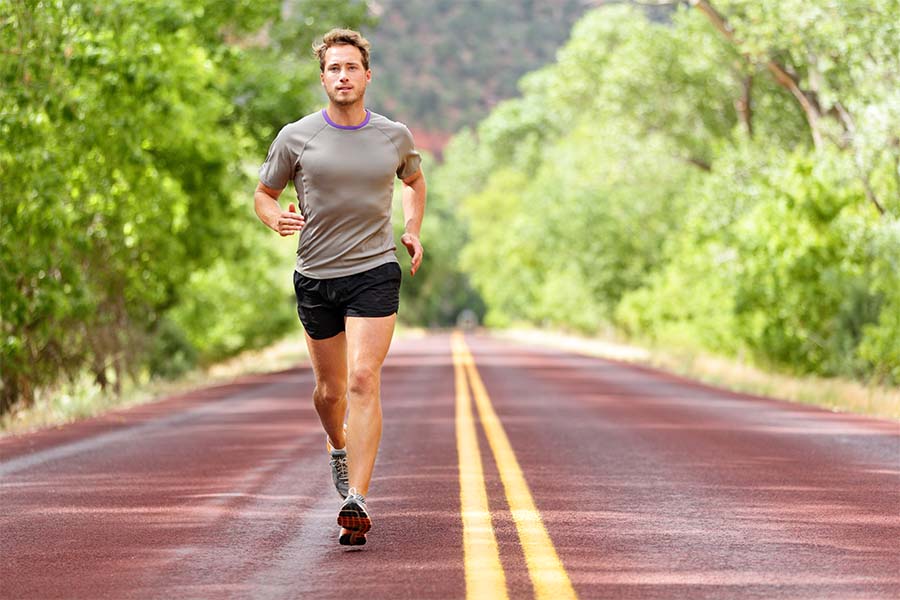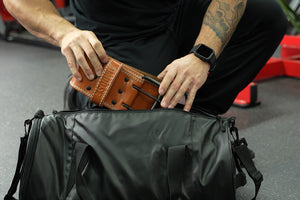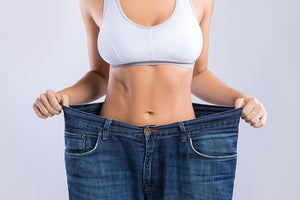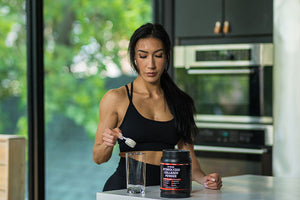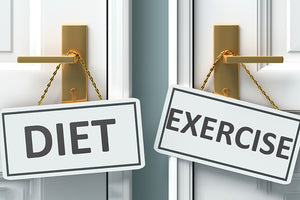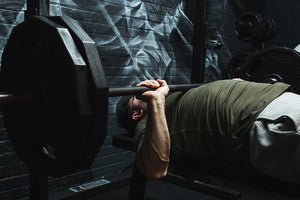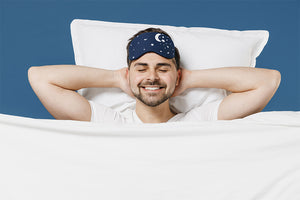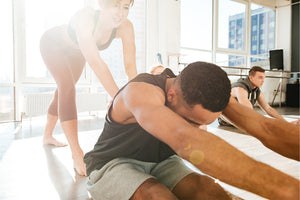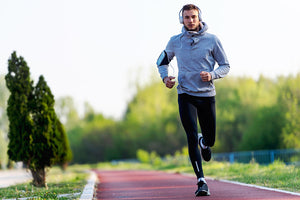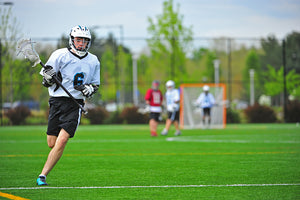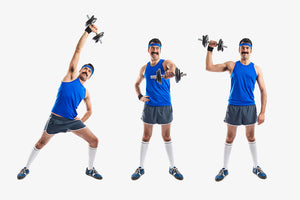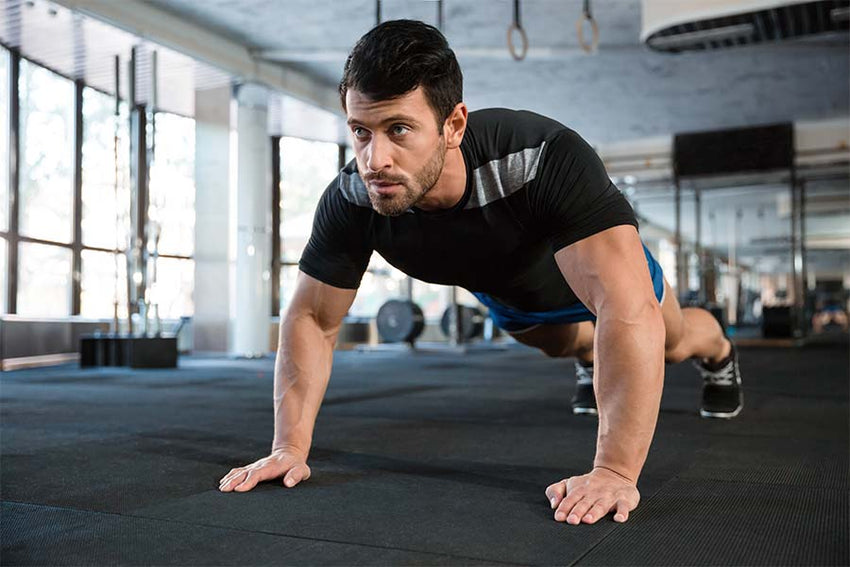The performance of an athlete depends mainly on their mind than their body, this is because psychological strength generates physical actions.
For a young athlete managing a hectic schedule filled with school, sports, and college preparation is challenging. How can you get enough sleep, eat, train, and still obtain decent grades?
Anything is possible if you approach it the correct way! Simply put, you need practical methods to organize your time and outlook to maintain concentration even when life becomes chaotic.
You need to mentally and physically heal as a young athlete, so you can feel prepared to tackle your opponents head-on.
You may ask yourself, why do I need recovery? Recovery is a must for young athletes because when you do athletics, your body is damaged. You are exerting pressure on yourself and exercising above your current capacity.
Tiny tears form in the muscles during activity, particularly strenuous exercise. Muscles gradually get bigger and stronger as they recover over time. It's critical to remember that this process happens during the rest and recovery periods, not the actual workout session.
The body needs adequate rest to restore itself if you want to see improvements in your fitness level and for it to continue performing the tasks you want it to. Those ice packs you've been using can assist, but they're not the solution. If you are an athlete, it requires a break from your regular sport.
To understand how to recover, we will need to know the goal of recovery:
What is Recovery, And Its Goal?
Recovery in sports refers to allowing your muscles to heal from the strenuous exercises your body went through while training. This can be done either actively through therapies and special techniques or passively through making lifestyle changes.
As a young athlete you should focus on passively healing your body.
The goal of recovery is to reestablish both physiological and psychological functions, so the athlete may resume training or compete at the proper level.
The process of recovering from training and competition involves many variables. It depends on the type of exercise done and external stresses to the athlete. Numerous factors influence athletic performance. Such as stress, sleep, diet, and daily activity
Thus good recovery should take these factors into account.
Signs That Athletes Need a Rest Day
Your body will let you know when you need to take a rest day and forgo your regular workout if you pay close attention to it.
These are the top signs for taking a rest day, according to a study that polled 605 competitive athletes:
- General sense of exhaustion
- Performance decline that isn't explained (generally lasting between one week and one month)
- Musculoskeletal pains and discomfort
- Agitation, irritability, moodiness, insomnia, poor appetite, increasing illness, and feelings of stress and despair were other signs that it was past time to rest and heal
Younger athletes need to ensure they are taking their few weeks of rest a few times a year when we notice these indicators of overtraining. They may need to take even more time to make up for some of the rehabilitation they've missed.
Recovery Process As a Young Athlete
Athletes use several popular methods, like hydrotherapy, etc., to enhance muscle recovery. But as a young athlete, you should let your body do the repairing without using external stimuli to promote healing. This can be achieved by lifestyle changes mentioned below.
Make a Detailed Schedule

Consistency is essential for achieving the best results. It is well-known among coaches and athletes that repetitions result in gains. This is why an organized plan is necessary for good strength conditioning.
Every athlete can increase their performance by developing a pre-game and workout program.
Following are some tips to follow while scheduling as a young athlete.
Plan for real life - Consider what you can achieve each day, and be realistic. For instance, be careful to schedule breaks between activities to allow for rest, food, and travel.
Give yourself enough time - Budget at least 1 hour of homework for every hour of class time.
Plan study time - Set aside blocks of time to study and work on projects. Then, decide what you need to do within each time slot.
Plan time for fun - Leave time in your calendar for the activities that give life meaning, such as hobbies or time spent with friends.
Don’t over-commit - Avoid packing too many activities and jobs into your schedule. Don't forget to provide yourself with some leeway. Keep in mind that not all unanticipated occurrences that can and will occur can or will be predicted.
Spread things out - Try to spread out unscheduled events throughout the week so that they are not concentrated on already busy days.
Learn Stress-Management Techniques
For young athletes , stress management is crucial. However, young athletes have additional responsibility and require instruction on effectively handling these stressors.
The stress hormone cortisol is increased by persistent stress, which could delay recovery. This indicates that stress can raise an athlete's chance of getting sick or hurt. Cortisol can be reduced via mindfulness meditation.
Following are some tips to reduce stress as a young athlete:
Take One Thing At a Time - Don’t overthink about school and practice everywhere. Break each of these responsibilities into manageable sections and deal with them where appropriate. Think about school at school, think about the practice at practice, and so on.
Reframe Success - Parents' and instructors' expectations might unwittingly raise the pressure to achieve, which hurts confidence. Instead of merely concentrating on the outcome or winning, young athletes should put in their best efforts and track their growth.
Teach Coping Skills for Life - An athlete who struggles to cope with stress can benefit from learning coping mechanisms. Introduce yourself to relaxation practices such as yoga, going on walks, diaphragmatic breathing (deep breathing), progressive muscle relaxation, and others.
Ask for Help When You Need It - Athletes can learn effective coping mechanisms to apply the next time they experience negative stress by talking through stressors with a qualified psychologist or mental health counselor. This can be a good release for persistent stress.
You can also use DMOOSE stress rest supplements to ease your mind from any unwanted stress so that you can focus on the task at hand.
Related Article: 15 Techniques to Reduce Stress and Enjoy a Wholesome Life
Eat Well
For your body to recover, it requires proteins and other essential macronutrients to build up muscles and mass fast and efficiently.
Consume enough protein, carbs, and fat because they are all important for your body. It could be a good idea to plan a couple of extra snacks for the day. Make eating a habit rather than a last-minute decision.
Most young athletes require three meals per day that are well-balanced and feature a range of fruits, vegetables, complete grains, lean proteins, and snacks in between. If you’re struggling to keep a good protein diet, you should use DMOOSE whey protein powder or make homemade protein bars.
Additionally, it's crucial to stay hydrated throughout the day by consuming primarily water throughout meals (or milk or a milk alternative).
Importance of Hydration
It should go without saying that your first goal during your workout should be staying hydrated. It's simple to become dehydrated. Your body will sweat, losing fluids in a warm gym or field.
Your muscles produce heat as you exercise. This significantly raises the temperature of your inner body. Your body attempts to cool you off by sweating.
During a demanding workout, your body may lose up to 45 ounces of water each hour. You must always have access to water. But make sure to drink within the recommended consumption of 20 and 40 ounces of water per hour during your workout, as overdrinking can also be harmful.
Related Article: How to Make Protein Bars: Chocolate Peanut Butter Protein Bars Recipe
Take Breaks
Getting enough rest is crucial for both physical and mental recovery. Long game seasons can be mentally taxing. Taking downtime is crucial for younger athletes. You must allow yourself time to recover psychologically and avoid the risk of overexerting yourself physically and risking an injury.
For many athletes, juggling sports, coursework, and extracurricular activities can be extremely difficult.
A pause gives them the chance to rest and refuel. They will use this break to prepare for and manage the upcoming season.
Athletes find it challenging to slow down from their fast-paced lifestyle, but taking time off between seasons is crucial.
Unfortunately, athletes who take some time for mental health are frequently questioned, unlike those who do so for physical health. This is unfortunate because research indicates that taking a break can help athletes improve their attitude and mentality off the field and their performance.
So even if athletes only want to keep playing, taking a break offers several advantages, including:
- Increases productivity
- Increase endurance and strength
- Trains the mind for upcoming challenges
- Give you some time to make a game plan for next season
- Helps you focus on other activities like going out with friends
- Decreases stress significantly
- Promotes healing and recovery drastically
So if you think your performance has been decreasing recently, take a break and relax mentally and physically for a few days.
Don't Worry About Technicalities
Some bumps in life are bigger than others. If a situation jeopardizes your priorities, deal with it, but try to maintain a relaxed attitude regarding little inconveniences.
A potent strategy for managing stress and performing well under pressure is to alter your thinking. Don't let unimportant problems undermine your effectiveness.
If circumstances change at the last minute and your timetable becomes unreliable, take a moment to collect your thoughts before making any necessary adjustments. Check to see if anything can be moved to accommodate a change in plans.
Everyone experiences it, so don't be hard on yourself or worry excessively. You are not always entirely on course. You can return to your objectives more quickly the sooner you come to terms with them.
Make Sleep Your Primary Objective
The impact of sleep on the growing brain is well known. A high-performing young athlete's developing body depends on receiving enough sleep. The body may recuperate and rebuild itself physically and emotionally while sleeping.
Sleep is divided into two recovery phases :
The Physical Recovery Stage - More than 50% of the growth hormone you produce each day is produced during the first four hours of sleep, which is when physical recovery takes place. This allows the body to repair, recover, and maximize training adaptations, including enhanced muscular development, strength, and power.
The Mental Recovery Phase - It is predominant during the final four hours of sleep and is crucial for the growth of short- and long-term memory, processing, and cognitive function. This stage promotes mental agility.
Athletes who get enough sleep will also experience greater training results in addition to the mental benefits. On the other hand, fatigue brought on by a lack of sleep impairs cognitive and motor function, reducing reaction time.
Lack of sleep affects cognition, drive, concentration, memory, and learning. Without sleep, the brain finds it difficult to strengthen memories and absorb new information.
Teenagers frequently strive to balance their involvement in sports, academics, and other activities, but sleep may suffer as a result. Consider the following advice for your teen athlete:
- Children need 9 to 12 hours of sleep every day between the ages of 6 and 12.
- At the very least, teenagers between the ages of 13 and 18 require 8 to 10 hours of sleep every day.
These sleep requirements can be satisfied by taking naps throughout the day and sleeping through the night.
FAQ
1. How do I develop better sleep habits?
Young athletes can benefit from the following advice for a more peaceful night's sleep:
- Keep a consistent bedtime routine. Even on the weekends and during the summer, go to bed and get up around the same time every day.
- In the evening, turn off the screens. For 1.5 hours before bedtime, stay away from blue light from tablets, TV displays, laptops, and mobile devices. The blue light from these screens prevents the brain's production of melatonin, a hormone that signals your body and brain to start falling asleep.
- Reduce caffeine intake. Also you can stop consuming caffeine past 3pm.
- Exercise in the early or late afternoon. The best time to exercise to promote restful sleep is four to five hours before bedtime.
- Remain calm. Keep the bedroom cold and dark, lower the thermostat in your athlete's room to 65 to 67 degrees Fahrenheit.
- Take some time to relax. The brain can release melatonin by taking a 20-minute warm bath, followed by a chilly, dark area where you can sleep.
2. How can young athletes boost their effectiveness?
Before you exert extra pressure on particular muscle groups, let them take a day or two to heal. You can skip the hard cardio or skip a few days of exercise altogether. Simply space out your workout days to give your body the required time. Another excellent idea is stretching after a workout.
3. How long should the muscle be allowed to heal?
The suggested period for muscle recovery is 48–72 hours. You can use active rest following your workout and the appropriate macronutrients in your diet to hasten muscle repair.
Take Away
These pieces of advice may seem a little challenging at first. It will take your brain a few weeks to adjust if your sleep schedule is inconsistent. You cannot feel hungry if you are not accustomed to eating at specific times.
It's normal for mediation to feel uncomfortable if you've never done it before. You're creating new behaviors, which requires consistent effort.
The greatest benefit of using these techniques is that they will benefit you for the rest of your life. A busy schedule filled with various interests can be balanced by setting priorities, adhering to a timetable, and managing stress.
Put all of your faith in the procedure. Try keeping a journal for a few weeks to record your feelings throughout time. How do these new activities affect your energy levels, athletic ability, emotions, and numbers?
Embrace healing. Respecting your body and mind will show in your accomplishments and overall quality of life.
Reading List
Why is Sleep Important for Your Health?
Active Recovery Vs. Passive Recovery: Which is the Best Choice for You?
TRENDING ARTICLES
Article Sources
- Grandou, C., Wallace, L., Coutts, A. J., Bell, L., & Impellizzeri, F. M. (2020). Symptoms of Overtraining in Resistance Exercise: International Cross-Sectional Survey. International Journal of Sports Physiology and Performance, 16(1), 80–89. https://doi.org/10.1123/ijspp.2019-0825
- Doherty, R., Madigan, S. M., Nevill, A., Warrington, G., & Ellis, J. G. (2021). The sleep and recovery practices of athletes. Nutrients, 13(4), 1330. https://doi.org/10.3390/nu13041330


